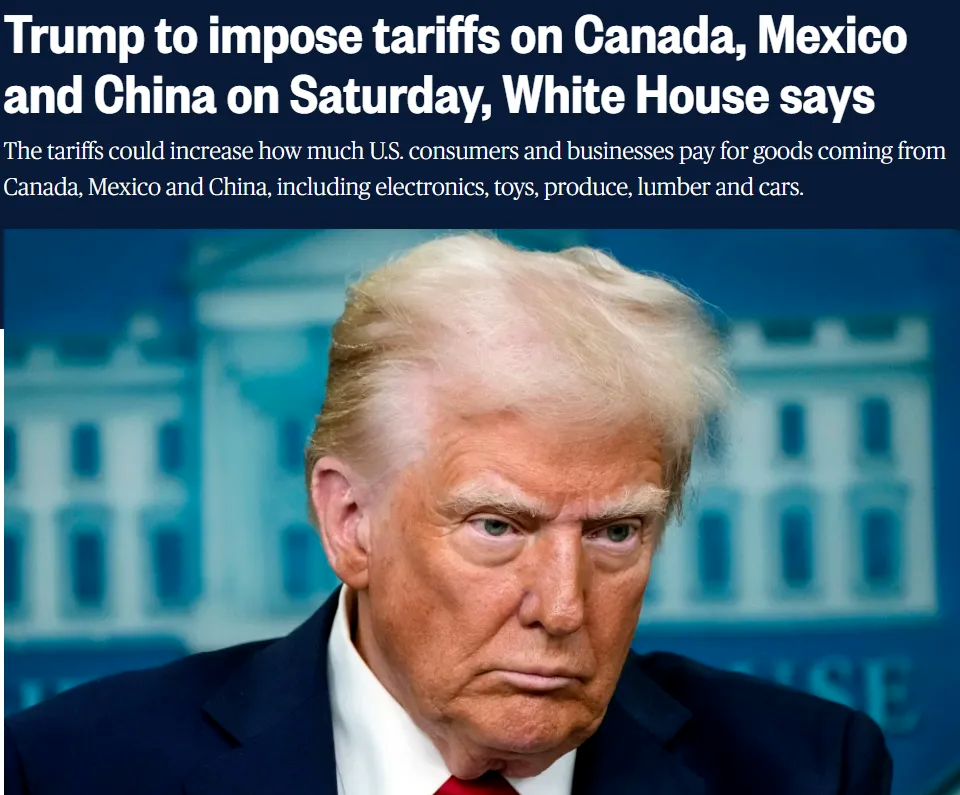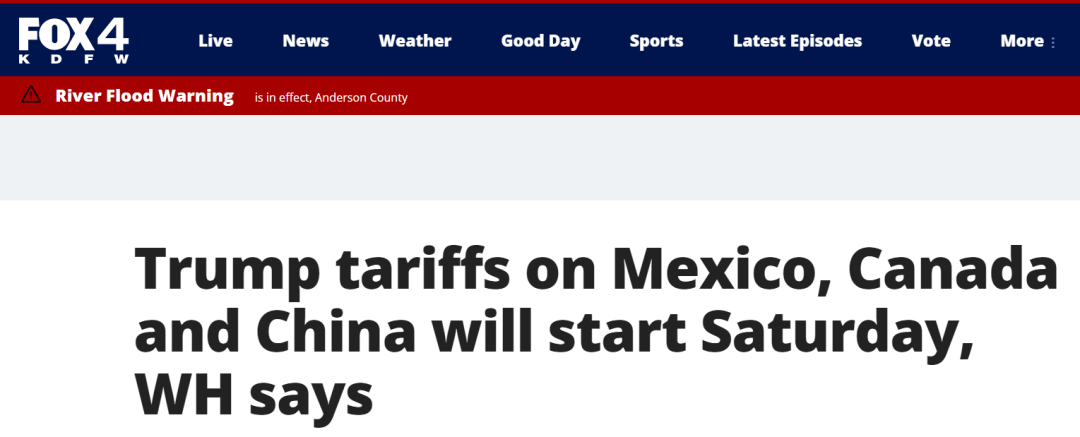Breaking! The White House announces a 10% tariff increase on China, effective immediately!
AP, CNN, Fox News: Trump Announces Tariff Hike on China, Canada, and Mexico
According to reports from the Associated Press, CNN, and Fox News, U.S. President Donald Trump announced on January 31 (local time) that the U.S. would impose an additional 10% tariff on Chinese imports. Meanwhile, goods imported from Canada and Mexico would face an additional 25% tariff, effective February 1.
Speaking to reporters at the White House on January 31, Trump stated: “These three countries will not be able to stop the tariffs from taking effect on February 1.”



U.S. Media Coverage
Trump’s move has sparked concerns within the U.S. about rising prices for imported goods. Some Democratic lawmakers have criticized the decision, stating, “If these tariffs take full effect, they will increase prices on everything from groceries and cars to gasoline, making life even harder for middle-class American families.”
During Trump’s first term, he launched a trade war against China in 2018 by imposing tariffs on Chinese imports, prompting retaliatory measures from Beijing.
At a press conference on January 22, Chinese Foreign Ministry spokesperson Mao Ning responded to the U.S. tariff hike, saying: “We have repeatedly stated our position. We firmly believe that there are no winners in a trade war or a tariff war. China will resolutely safeguard its national interests.”
Global Trade and Economic Impact
Notably, under the influence of protectionist policies, global industrial and supply chain structures are undergoing a transformation. Cost efficiency is no longer the primary principle; instead, supply chains are becoming increasingly linked to geopolitics, values, and ideologies. The trend of “nearshoring” and “friendshoring” is accelerating, leading to a more fragmented and regionalized global supply chain.
Trump’s “America First” approach could lead to more trade wars targeting multiple countries, further increasing global economic uncertainty.
The new trade war will inevitably impact the shipping market. To avoid additional tariffs, cargo owners typically rush shipments in advance, creating short-term surges in demand that drive up shipping rates. However, this also disrupts the cyclical nature of the shipping industry, making freight rates more volatile and market trends harder to predict.
Source: CNSS







